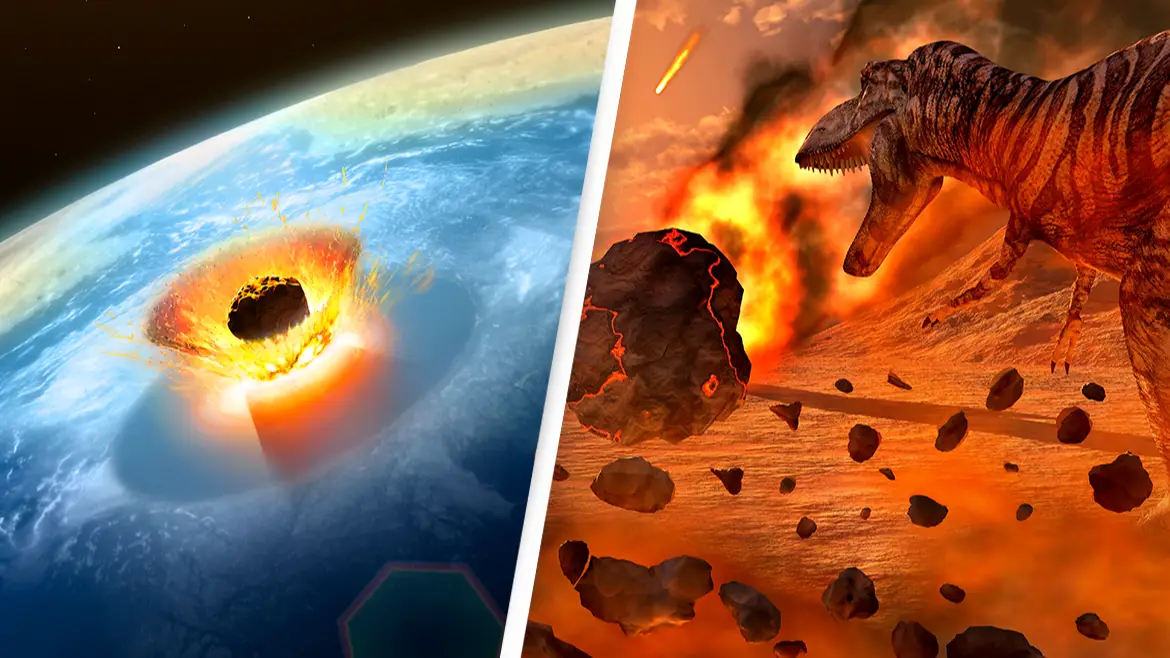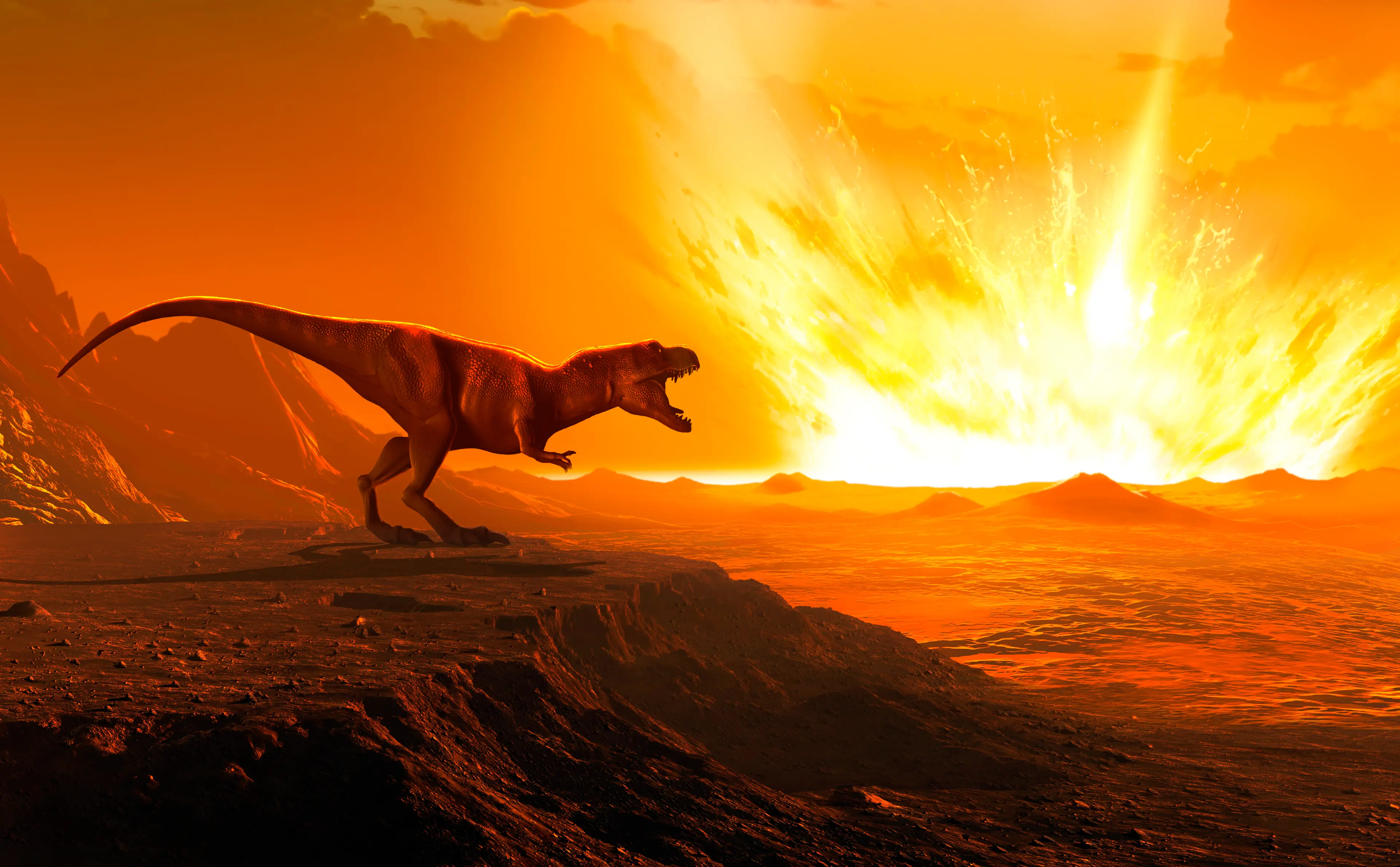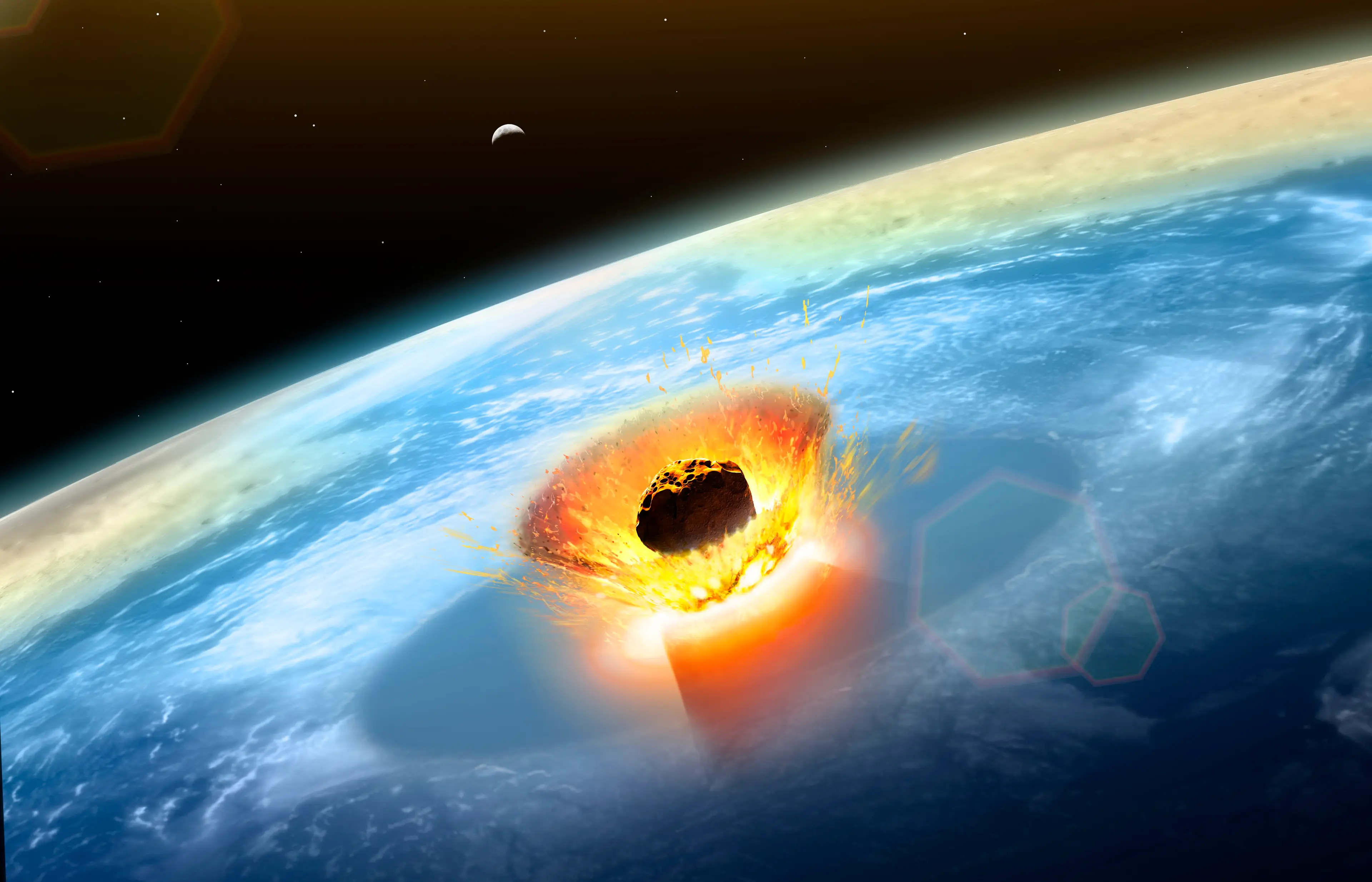
While many have been led to believe that it was the impact of an asteroid that wiped out in the dinosaurs, it turns out it wasn't.
Sixty-six million years on from their demise, scientists at the Royal Observatory of Belgium have been looking into it further and think they've found the real answer.
Dinosaurs had been roaming the Earth for approximately 165 million years, but 75 percent of them were killed off after the Chicxulub asteroid collided with our planet.
Advert
It's believed that the asteroid is said to have been between 11 and 81 kilometres in diameter, so it was inevitable it was going to do a lot of damage.
The impact of the asteroid caused what scientists hailed as a 'mega-tsunami', with waves more than a mile high.
But this isn't what killed off the dinosaurs either.

According to researchers, a plume of 'ultrafine dust' was released following the asteroid impact, which lingered in the atmosphere for a long as 15 years.
Apparently the dust particles were as small as 0.8 to 8.0 micrometers.
This micrometric silicate dust is now believed to have contributed towards the cooling of the Earth's surface, causing 'dust-induced changes in solar irradiance' that affected the planet's photosynthesis for almost two years, so masses of vegetation will have died off.
A news release from the Royal Observatory of Belgium goes on to explain: "The prolonged disruption in photosynthesis constitutes a sufficiently long timescale to pose severe challenges for both terrestrial and marine habitats.
"Biotic groups that were not adapted to survive the dark, cold, and food-deprived conditions for almost two years would have experienced mass extinctions."
Soot and sulfur from wildfires also played a part in blocking photosynthesis.

To get their findings, researchers sampled 'the uppermost millimeter-thin interval of the Cretaceous-Paleogene boundary layer'.
"This interval revealed a very fine and uniform grain-size distribution, which we interpret to represent the final atmospheric fall-out of ultrafine dust related to the Chicxulub impact event," explained Pim Kaskes, geologist and geochemist from Vrije Universiteit Brussel (VUB).
"The new results show much finer grain-size values than previously used in climate models and this aspect had important consequences for our climate reconstructions."
Researchers from the Vrije Universiteit Amsterdam (VUA) also contributed towards the study.